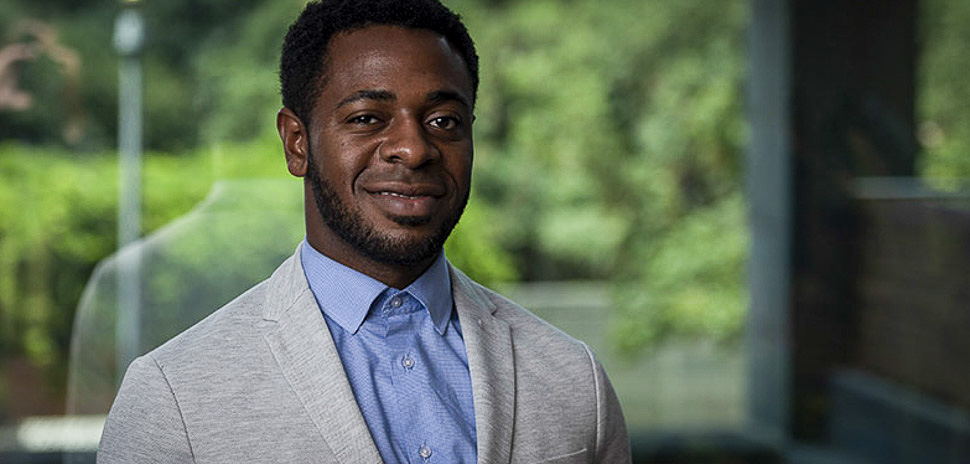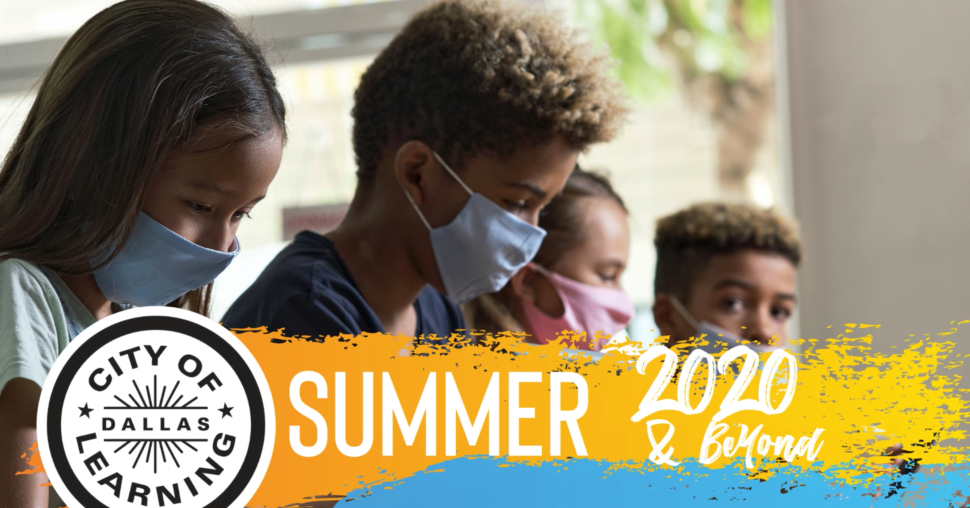When the pandemic forced the closure of many U.S. schools in spring 2020, students and teachers were thrown into an unfamiliar virtual classroom. The transition to remote learning posed significant challenges for everyone involved as they weren’t all equipped with the proper technology, resources, and support.
Big Thought, Dallas ISD, and other local organizations have a strong coalition focused on in and out of school social and emotional learning practices called SEL Dallas. With parents and teachers worried about the exacerbation of the “summer slide” and students developing emotional health problems, the coalition examines what was learned and the work that will be needed to recover.
A Dallas City of Learning Summer 2020 report has since been released that details initial data findings on this and its other summer programs, along with a follow up report highlighting the unprecedented time that summer 2020 was a part of due to the ongoing pandemic.
In a time of turmoil, the Dallas City of Learning— a public private partnership with a goal of helping young people learn and build skills when they are out of school—found a way to stay focused and provided students accessible, quality education for summer learning for little to no cost.
As the team learned more about the pandemic, adjustments were made and their constraints led to innovation and creation across the board.
“The digital divide has shown itself to be a massive challenge,” Byron Sanders, CEO of Big Thought, said in a statement. “I am most impressed with the efforts, creativity, and courage that our educators and administrators have put forth being able to be there for our kids.”

Byron Sanders [Image: Michael Samples]
Although this summer definitely looked different from the rest, the Dallas City of Learning (DCOL) partnered with 414 different organizations whose roles ranged from facilitating events to providing programs for youth and families.While there was a decrease in the number of partners from 2019, it did not discourage the DCOL, which successfully offered 856 different programs and events including 763 online programs, 95 in-person programs, and 2 events held across the city.
“We should not be comparing these findings from previous summers as we anticipated lower results,” Sergio Antonio Garcia, Senior Manager, Learning Systems for Big Thought, said in a statement. “Despite lower overall numbers, summer 2020 sparked many key innovations that will continue to have positive impact on the ecosystem.”
Dallas City of Learning’s summer 2020 findings
Recently, the City of Dallas, Dallas Independent School District, Big Thought, and SMU’s Center of Research and Evaluation came together for a State of the Summer update dedicated to evaluating outcomes from the Dallas City of Learning program.
In 2020, Dallas City of Learning partners served 36,665 people and provided 1,049 virtual and in-person program opportunities—resulting in 1,480,961 cumulative hours of programming. Sixty-six percent of program leads reported that they made significant alterations to their programming for summer 2020 and 68 percent said they are likely to continue with the adaptations they have made well after the COVID-19 pandemic ends.
But, the programs’ beginning of the year assessments indicated that students experienced 3.2 months of instructional loss from the closure of schools in addition to the typical 2.5 months of summer learning loss.
“This decrease in dosage of summer programming hours comes as no surprise, and yet it is troubling. It indicates that the loss of learning time that many students experienced during the school year, extended into the summer as well,” Dr. Annie Wright, SMU Center of Research and Evaluation, said in a statement. “This is concerning specifically because of our findings and of national findings showing that dosage matters. Accumulating hours and days of programming over multiple summers is what seems to really impact student academic outcomes.”
Students surveyed rated their current social-emotional skills a 2.22 out of 4, a decrease of nearly one full point from their pre-COVID ratings. This indicates that the average student does not agree with the positive statements about their feelings since school closed in March 2020.
“There’s a lot of ground we need to make up and it’s going to take all of us, including our out-of-school program partners, to address this significant learning loss,” Texas Education Commissioner Mike Morath said in a statement. “Organizations like Big Thought and the Dallas City of Learning system have necessary infrastructure that can be part of the solution.”
In spite of the environment, the ecosystem adapted and the summer programs gave children a safe environment to connect, socialize, possibly have a meal, and process what was happening around them.
As a result, the programs’ youth and caregivers survey outcomes were more positive in summer 2020 than in years past. In fact, students scored their positivity about school an average of 3.40 out of 4 (a one-tenth of a point increase compared to 3.29 in summer 2019 and 3.33 in summer 2018).
Caregivers reported that the adaptations made to Dallas City of Learning programs for summer 2020 were satisfactory and met their family’s needs this summer for a socially distanced learning opportunity and that the way the program was delivered made them feel like their child was safe.
Similarly, 52 percent of students shared, “when I came to this program this summer, it was the first time I have been with other kids outside my own family in a long time.”
“We are really fortunate to be part of an education community that is open-minded and collaborative. Having the Dallas City of Learning network already established has enabled us to respond to the pandemic in a unique way,” Sanders said. “We have an opportunity coming out of this crisis to evolve education for the better and our team is ready for it.”
The State of the Summer event also gave out four awards to organizations that participated this past year.
The Superintendent’s Award went to Vickery Meadow Youth Development Foundation. Recognizing college is about more than grades and academics, its Eagle Scholars program prepares students starting in the seventh grade with interviewing skills, public speaking, writing, while simultaneously helping them gain competence, knowing that their voice matters.
The Partner of the Year Award went to two organizations this year: Fit and Faithful Living and Dallas Community Fellowship, Inc. Both of these organizations were mindful that not all youth have access to devices or technology for virtual learning and provided in-person socially distanced regulated programming for youth as well as food services, highlighting the importance of wraparound services and resources.
The Neighbor Award went to 2 Inspire Peace Inc who gave learners tools to understand and express emotions using music, art, and deep breathing exercises as vehicles to heal by combining the stages of healing with songs of the featured artist or album to bring emotions to the surface.![]()
Get on the list.
Dallas Innovates, every day.
Sign up to keep your eye on what’s new and next in Dallas-Fort Worth, every day.



























